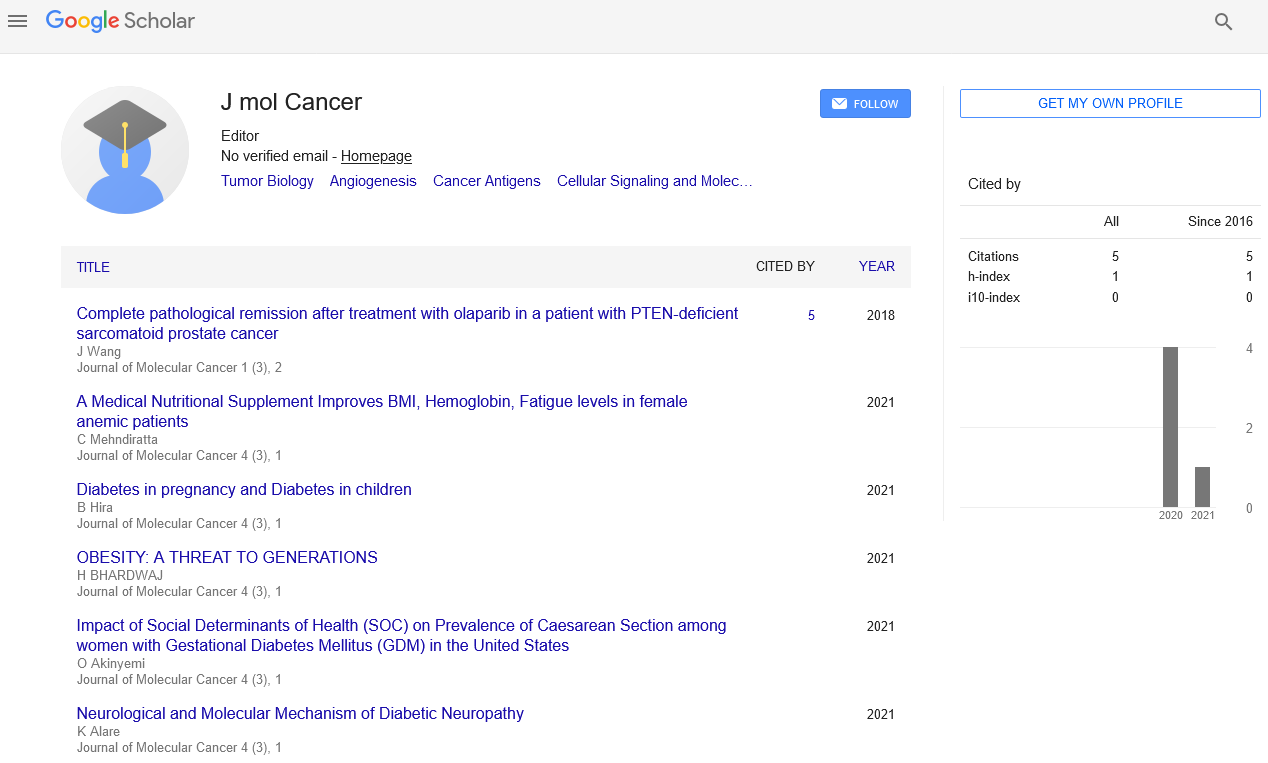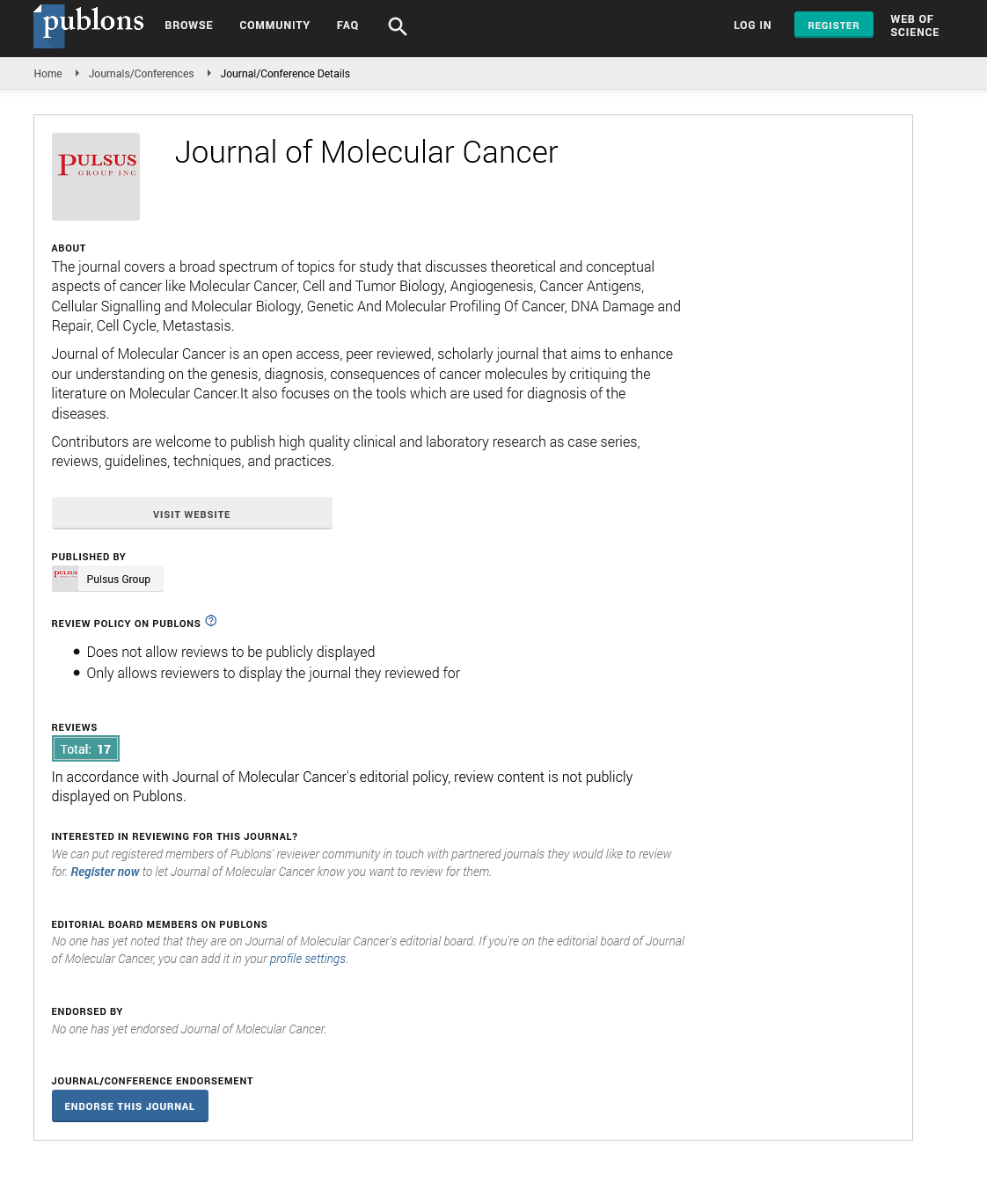
Sign up for email alert when new content gets added: Sign up
Abstract
Complete pathological remission after treatment with olaparib in a patient with PTEN-deficient sarcomatoid prostate cancer
Author(s): Jue WangPrecision oncology utilizes the individual tumor genomic information to guide the optimal cancer treatment. In this case report, we describe a 67-year-old white male with T3N0M1, Gleason score 9 (5+4), prostate adenocarcinoma, who developed progressive urinary obstruction after seven months treatment of luteinizing hormone-releasing hormone analog. A Computed Tomography (CT) scan detected large masses within the pelvis, involving the bladder and rectum. He underwent resection of tumor with pathology finding of carcinosarcoma transformation (sarcomatoid prostate cancer). Comprehensive genomic profiling identified multiple genomic alterations including TMPRSS2-ERG rearrangement, PTEN deletion, RB loss, and TP53 alteration. Based on the novel findings from next generation sequencing, he was treated with the oral Poly ((Adenosine di-phosphate) ADP)-Ribose Polymerase (PARP) 1 inhibitor olaparib. CT scan after three months of therapy showed interval necrotic tumor changes of the heterogeneous prostate mass. The patient underwent pelvic exenteration to manage rectovesical fistula. Pathology showed complete pathological remission without residual tumor. This case highlights the potential of clinical next-generation sequencing in guiding the treatment decision of rare cancer when standard options fail, and thereby improving patient outcomes.
Full-Text | PDF





